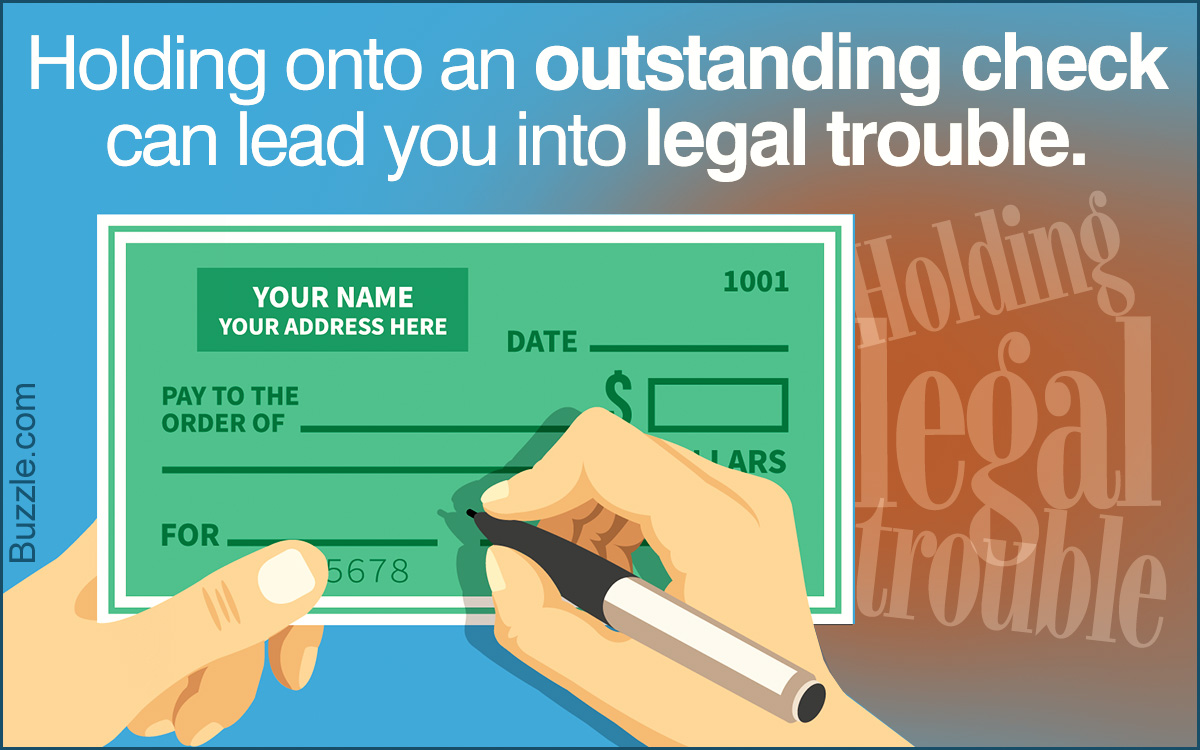
Outstanding checks are those, which have been written but not cashed yet. WealthHow here enlists some things you should know about outstanding checks.
Do not spend money until you are sure that the bank has collected its due amount. If you are doubtful, call the bank and verify.
When a check is written by a party, it first goes through a clearance procedure at the bank, and then the money is officially transferred to the account of the other party. When the check has still not made its way through the clearance, it is termed as an ‘outstanding check’. When the clearance procedure takes very long, they are called ‘stale checks’. A lot of doubts and confusions revolve around this term, with regards to their entry, balance sheet, legalities, etc. The paragraphs below attempt to provide you with some important information related to outstanding checks.
- It is a financial entity that has been written or recorded by the issuer, but has not yet reached the person it was supposed to reach.
- The main reason for this is the extended clearance procedure of the bank, which could be due to any number of reasons.
- Normally, this procedure takes about a couple of days. This time lapse is mainly for the postal service and delivery.
- If the mailing has been delayed, the clearance process is delayed too.
- Alternatively, if any information provided on the check is false or incorrect, the clearance procedure is stalled.
- An outstanding check thus causes a lot of problems, right from the issuer to the bank to the receiver.
- If you notice that your check hasn’t been cleared, contact your payee immediately.
- Perhaps he has some work or does not need the cash urgently; whatever the reason, notify him to cash it as soon as possible.
- You will also need to inform the bank and keep them in the loop.
- If your payee requests you to send another check, ask him to return the old check, and reissue a new one.
- In some situations, you may not get your old check back; it may have disappeared, for whatever reason.
- Unfortunately, you will now have to issue two checks for the same payment, which means that if your old check gets cashed later, you will end up paying the same amount twice.
- Generally, there is a 6-month prior period, and after that no check gets cashed, but you will have to be careful anyway, and keep yourself updated about the check status.
- In case you are really insecure (may be the payee is not trustworthy or the payment is huge), you can consider stopping the payment on your old check.
- It lasts only 6 months, and you will have to pay fees for the same.
- When the check is not cleared by the end of the month, it does not appear on the month-end transaction statement.
- The bank reconciliation thus prepared, will have this check listed as a reconciling item.
- As long as the check is not cleared by the payor, it remains with him as a liability.
- If and when the payee demands the payment, the liability is eliminated.
- If the payee does not respond, the payor can mark the check as ‘void’, and the amount he was supposed to pay remains unpaid.
- Of course, his account now has more money than it would have had if the check was cleared, this however, is marked as ‘not paid’.
- Regarding what entry is required to record outstanding checks, the bank maintains a record, and the checks of the previous month have either been cleared or they remain on the list.
- In the process of bank reconciliation, the amount of the outstanding checks is deducted from the balance sheet (bank statement balance).
- Your bank accounts must be reconciled, because there is a difference in your checkbook records and the records of your accounting system.
- If you are the payor and you write a check, the bank has no idea about it until it is cashed by the payee.
- Therefore, not clearing an outstanding check is a legal crime.
- To elaborate, if you own a private venture and your employees have not cashed the check and even you have not cleared it, you are actually holding onto an unclaimed property.
- If you do not take remedial measures soon, you may have to hand over your account balance to the state.
- What’s more, these checks make the accounting process rather complicated.
- This is because the cash has not been cleared from your account, and you may presume you have more cash than you actually do.
- When your check is ‘outstanding’ for a long time, you have to pay overdraft fees. In order to avoid doing so, you should clear the process as soon as possible.
- You can keep track of this by balancing your accounts and maintaining a register.
If you are in a situation where you have to cash an outstanding check or pay one, do so immediately. Any delay will put you through legal trouble, and will affect your checking account at the bank as well.

